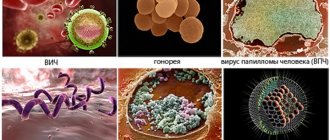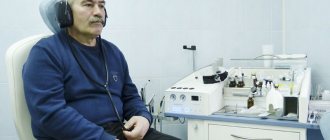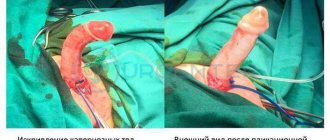Lack or decrease in libido in a woman is a problem associated with a decrease in the desire for intimacy with a sexual partner or masturbation for sexual pleasure.
This is a sexual disorder associated with many factors of the mental, endocrine, genitourinary and other systems. Doctors talk about the problem only if an individual decrease in sexual desire is recorded in a particular patient: it has become lower compared to the previous period and lasts from 4 to 6 months.
It is impossible to diagnose a decrease or absence of libido based on any general signs: the patient may always be overly modest, shy, or, on the contrary, usually radiate sexuality and attraction.
Diagnosis of decreased libido
To identify the causes of sexual dysfunction, gynecologists will conduct a full examination of the patient. First of all, laboratory blood tests for hormones and biochemical components are needed. Be sure to take a general blood test and a urine test to identify inflammatory reactions in the body. Laboratory assistants also conduct microscopy of vaginal smears and scrapings from the vestibule to assess the state of the microflora and determine the presence of pathogenic microorganisms.
The doctor also prescribes instrumental diagnostics:
- Transabdominal ultrasound of the pelvic organs and thyroid gland;
- Transvaginal ultrasound;
- MRI, CT scan of the pituitary gland, hypothalamus;
- Multislice computed tomography of the adrenal glands.
You may need to consult a psychologist and psychotherapist, cardiologist, neurologist and other specialists.
When diagnosing “absence or decreased libido” in women, doctors also take into account the psycho-emotional component. It is important to tell the doctor about possible previous problems: stressful situations at work, constant quarrels with a sexual partner, other nuances that a woman pays strong attention to to the detriment of sexual activity.
The doctor conducts tests, offers to take surveys, fill out various questionnaires, where the patient independently assesses her sexual desire at the moment, compares it with previous periods, and finds possible reasons. Such a subjective opinion helps the andrologist or gynecologist to collect a detailed medical history.
Where does libido go and how to get it back?
Irina Vyatkina, gynecologist-endocrinologist at the Marina Ryabus Clinic, explains.
Out of ten women who come to see me, only 2-3 are satisfied with their sex life. And only a few experience orgasm during intimacy. We’ll talk about the reasons for these statistics in a separate article, but here I present these numbers to say: the presence or absence of an orgasm has almost no effect on your libido. Frankly speaking, even the presence or absence of your sex life has little effect on your libido. What then does it depend on, why is it needed and why does it disappear? Let's figure it out.
Libido is a sexual desire that appears in a woman at the beginning of puberty and can (and normally should) persist until she is 120 years old: there is no upper age limit here. It can occur without the presence of a partner, or in his presence, or already during foreplay: it’s individual. Libido is a companion to good physical and psychological condition, general vitality, “burning eyes” and interest in life. But its absence or decline at any age is a reason to be wary. It cannot just disappear like that: in any case, there is a reason, and it is possible that it is serious.
WHY DOES LIBIDO FALL?
The main reasons are divided into two groups: psychological and medical. True, most often they are intertwined, and in order to help the patient, the doctor must first untangle this tangle. For example, after childbirth, some women's pelvic floor muscles weaken, the vagina loses elasticity, stretches, friction during intercourse becomes insufficient, and characteristic sounds may appear. As a result, the woman begins to feel shy, avoid contact, and her libido decreases. In this case, several sessions of intimate rejuvenation can correct the situation. But in general, it is better to solve psychological problems at least with the participation of a specialized specialist, so let's focus on the medical side of the issue.
There are many medical reasons for decreased sexual desire, from simple overwork to serious hormonal problems. Female libido directly depends on the level of testosterone and magnesium: the lower these indicators, the less desire. Why does magnesium decrease? One of the most common reasons is overwork or stress. In this case, along with magnesium, the level of cortisol (the so-called stress hormone) also changes, which deals an additional blow to libido. In addition, magnesium levels may decrease if you abuse alcohol, coffee and fatty foods, if you are on a strict diet, or take antibiotics. By the way, magnesium is one of the most important microelements and affects not only the level of sexual desire, so it would be good to check it at least once a year.
Let's move on to testosterone. Strictly speaking, any change in hormonal levels can lead to a decrease in libido, but it is directly related to the lack of testosterone. Testosterone deficiency can occur if you go on a strict diet, become a vegetarian or raw foodist, if your menu contains too many carbohydrates. The next items on the list are lack or excess of physical activity, obesity, neoplasms in the ovaries, the already well-known stress and alcohol, and, of course, any, even minor, hormonal imbalances.
Don’t forget about the natural cause of a drop in testosterone and other sex hormones – menopause. A decrease in libido in this case is just the beginning. It is often followed by changes in fat metabolism, rapid weight gain, rapid aging of the skin - in a word, age-related changes. Therefore, if you notice a decrease in libido with age and think that this is inevitable, forget it. Firstly, not everyone’s libido decreases with age, and age alone cannot reduce libido in a healthy person: as I already said, it can and should persist into 80 and 90. Secondly, the youngest people , older women who look and feel best are those who are genetically lucky to have high and stable levels of sex hormones even during menopause. Thirdly, today's medicine can easily balance hormonal levels, soften the symptoms of menopause or even delay its onset. This can be done, it is necessary, it is not difficult and not dangerous, but not using modern scientific achievements for the benefit of one’s own body is a real crime. You're not giving up antibiotics, are you? Therefore, contact a competent endocrinologist at the first signs of menopause: I guarantee that you will not regret this decision.
Another common cause of decreased libido is hormonal contraceptives. We talked in detail about why you shouldn’t be afraid of them in the previous article, but still, for some, libido actually drops while taking GC. And here you need to understand several things. Firstly, this decrease is temporary. Secondly, this can often be corrected with a banal course of microelements. Thirdly, there are different drugs, and not all of them affect libido, so it won’t be difficult for a good doctor to choose the right one for you.
Well, as a separate point, I’ll mention the decrease in libido after childbirth: this happens quite often. One of the reasons is an increase in prolactin levels. The timing is very individual, but if attraction has not been restored after a year, it is worth consulting with a specialist.
WHY DOES LIBIDO INCREASE?
I don’t know whether this information will make you happy or sad, but there are no medical pathologies that increase libido. The so-called “uterine rabies” or nymphomania is a mental disorder, and not an endocrine one. As for the phenomenon of “women after 35,” when, as is commonly believed, we reach the peak of sexuality, the explanation is quite simple. By about 30-35 years, a woman’s hormonal levels finally level out and become stable: childbirth often contributes to this. In addition, at this age a woman becomes more stable emotionally. Most often, she already has a career behind her, her views on the world have been formed, she has accepted herself, her body and does not think about how her breasts look during sex or whether cellulite is visible. This means she can simply enjoy the process more. This is the explanation.
As for ways to artificially increase libido (both female and male), I have to disappoint: they do not exist yet. Even Viagra does not increase libido, but only solves problems with potency. It is assumed that if the patient wanted to solve them, then he still has libido. Of course, there are aphrodisiac foods that affect the production of dopamine. These are, for example, oysters, pumpkin, persimmon. But for any noticeable effect, you will have to eat so many of them that after that you will only want to take a Mezim tablet and lie down.
Therefore, if your libido has increased by itself, rejoice. This may mean that your hormonal levels have stabilized, that you have recovered from stress or overwork, or that you have a loved one at your side.
AND WHAT IS THE RESULT?
1. Decreased libido is always a symptom of something larger. If you feel it, go to an endocrinologist as soon as possible. At the very least, it definitely won’t hurt to get tested, but it can help to identify hormonal problems, early menopause, incorrectly chosen GCs, inappropriate lifestyle, ovarian diseases and much more.
2. Libido is not just about sex. In a broad sense, it is synonymous with youth. Take care of its restoration, and there is a very high probability that after a banal course of vitamins and microelements you will feel a completely different quality of life, both physically and emotionally.
3. Declining desire with age is a myth. A healthy person retains libido at any age.
4. If you think that your libido has always been low, or if you think that it has decreased because you are tired of your partner, make an appointment with a good endocrinologist. It is very likely that a lot of surprises await you.
5. There are plenty of ways to correct hormonal levels and restore libido. These are drugs with testosterone and drugs that affect its production, as well as dietary supplements with magnesium and much more. But only a doctor can prescribe them and only after tests for hormones and microelements. And please never try to interpret your test results on your own. The boundaries of the so-called “norm” are very arbitrary, individual and depend on the ratio of different indicators.
Treatment of low sexual desire
If the doctor has identified pathologies that affect libido, they begin treatment. Specialists from the field whose problems were discovered during the examination are involved in the therapy program.
Medicines
Drug therapy is based on eliminating the root cause and restoring sexual desire. Anti-inflammatory, painkillers, angioprotectors and antispasmodics may be prescribed to restore blood circulation.
If the cause of the pathology lies in the malfunction of the endocrine system, doctors choose hormonal drugs: tablets, vaginal rings, creams, gels. Sometimes lifelong hormonal therapy is required. In difficult situations, for example, with tumors of the pituitary gland or hyperfunction of the thyroid gland, endocrinologists perform operations.
Often simply replacing oral contraceptives or adjusting their dosage is sufficient. Then libido is restored within 1-2 months.
Psychotherapy
Communication with a psychologist or psychotherapist will help to identify the range of reasons for the decrease in intimate desire, and a course of competent psychotherapy will help to completely eliminate them.
It is important to tell the specialist everything that worries you and answer questions honestly. Sometimes the doctor prescribes medications to help restore the psyche.
Other help
Sexologists recommend establishing a trusting relationship with your sexual partner: perhaps the reasons lie in misunderstanding. It is important to talk about your fears, desires, dissatisfaction. Well-established spiritual intimacy will be a good help in the intimate sphere.
It is also recommended to change the environment and spend more time on foreplay. Scented candles, oils, aphrodisiacs will help you relax, and intimate toys and stimulants will catalyze sexual desire.
It is necessary to reconsider your lifestyle: stop drinking alcohol, tobacco products, eat right and engage in moderate physical activity. A course of vitamin complexes will restore and strengthen women's health.
Increase libido
This is a type of sexual dysfunction, completely opposite to the one described above - continuous sexual desire. It is studied in more detail by sexologists, psychotherapists and clinical psychologists.
The following forms of increasing libido are distinguished:
- satyriasis in men and nymphomania in women;
- increased libido associated with taking certain medications;
- increased libido associated with certain mental disorders;
- increased libido not associated with organic disorders.
Symptoms of increased libido
- Constant sexual desire.
- Feeling dissatisfied after sexual intercourse.
- Frequent masturbation.
- Addiction to pornographic materials.
- Sexually compulsive behavior even with strangers.
- Deterioration of social contacts.
- Narrowing the range of interests.
- Feelings of anxiety and stress during sexual abstinence.
Reasons for increasing libido
- Hormonal disorders.
- Hereditary factors.
- Mental disorders (childhood trauma, schizophrenia, psychosis, epilepsy).
- A woman may perceive a certain increase in sexual desire in the postmenopausal period as a pathology.
Diagnosis of desire disorders (libido)
In diagnosis, collecting a medical history (anamnesis) plays an important role. The sexologist should refer to specific questions that should lead to a correct diagnosis:
How long has there been a decrease or absence of sexual desire?
What situations or circumstances accompanied the libido disorder?
Do you or your partner experience pain or discomfort during sex?
Were there any major changes in your life at the time of the desire disorder (libido)?
What diseases or sexual dysfunctions bothered you before the libido disorder?
What medications are you taking or were you taking before the problem occurred?
Laboratory tests must be carried out to determine the level of testosterone, prolactin and globulins that bind free testosterone.
The genitourinary system is also examined for the presence of infection, as well as additional methods if necessary to detect organ pathology: ultrasound, CT, MRI.
Symptoms of lack of sexual desire
Before starting treatment for lack of sexual desire in Moscow, specialists at the Isaev Clinic carefully study its signs. The main symptom of the problem is decreased libido, poor sexual fantasies and desires for intimacy.
For the overwhelming percentage of men, sexual life occupies a dominant position and is considered by them as an important component of normal existence. Among women, this percentage is slightly lower. More often they understand intimacy as part of a good relationship with a partner. In any case, problems with desire bring many negative aspects and lead to the formation of neuroses and depression, regardless of a person’s gender.
To understand the presence of a problem, one should distinguish between the concept of “low sexual need” and its “suppression.” Normally, there are people who initially have a low level of temperament; they rarely engage in sexual intercourse, start late and end their intimate life early. This phenomenon does not require treatment with medication, but if a problem arises in partners, psychotherapeutic help may be needed to maintain a normal relationship.
What to do if there is a deviation?
If there are problems with libido, a woman should visit a sexologist. After diagnostics and a clinical conversation, the sexologist refers clients to specialized specialists if they suspect the presence of organic and somatic disorders that caused the disorder. This is a gynecologist, endocrinologist, psychologist, neurologist.
A course of psychotherapy in a multidisciplinary setting will help normalize sexual desire. Our center’s specialists conduct diagnostics, determine the source of the problem and prescribe a correction program. Individual therapy is selected for each client.
If you or your partner have problems with libido, make an appointment with a sexologist by phone: (812) 642-47-02 or fill out the application form on the website.
1.General information
Libido is a complex concept, borrowed from classical psychoanalysis (although the word “libido” itself, which once meant only passionate desire and desire for physical intimacy, was not invented by Freud and was used long before him). But today, libido is understood as the psychosexual energy accumulated by the body, requiring realization, release and satisfaction, as well as the entire set of sensations, fantasies and experiences associated with this need, conscious and unconscious.
Hypolybidemia in direct translation means a decreased level of libido, i.e. weakening of the above needs. This phenomenon is occurring more and more often in the civilized world, and not only among women (as is implied in many publications devoted to this phenomenon), but also among men.
Alibidemia (anaphrodisia) is an extreme degree of hypolibidemia, i.e. complete absence of sexual desire, neutral-indifferent reaction to any sexual stimuli, deactualization of the need as such.
In this context, we should also mention coital anorgasmia (a purely female “scourge of civilization”, which consists in the impossibility or extreme rarity of orgasm during sexual intercourse, even if the latter is carried out with the most loving, understanding and competent partner), dyspareunia (dissatisfaction with sexual life, the perception of sex as an activity that is generally painful, uncomfortable and unpleasant; the term sexual anhedonia is also very close - lit. “joyless sex”) and aversion (severe sexopathological disorder, lit. “turn in the opposite direction”, when even the thought of sex causes a feeling of disgust, and sexual intercourse is perceived as sophisticated torture). However, a detailed discussion of these disorders is beyond the scope of this material; Let us only note that anorgasmia and dyspareunia are constant companions of hypolibidemia (especially alibidemia), and women are much more willing and in more detail to complain to their doctor about anorgasmia, while a deficiency of libidinal drives as a pathogenetic basis can be much more difficult to identify.
Phenomena of this kind have been known for a very long time, but their interpretations, which existed in different eras and different societies, in the absolute majority had nothing to do with science. Serious study of sexual desire disorders as a medical problem began relatively recently, 150-200 years ago.
Significant contributions were made by scientists such as J.M. Charcot, the aforementioned Z. Freud (who at one time attended Charcot’s lectures and recognized the enormous influence of his works), as well as the founders of domestic sexopathology G.S. Vasilchenko, A.M. Svyadosch and etc. One of the turning points was the work of American specialists William Masters and Virginia Johnson; built on rich statistical material, these publications in the 1970s had the effect of a bomb exploding in an area that had until then been taboo. As it turns out, the situation with psychosexual health and, in particular, with the level of libido in the average modern person is not nearly as good as was generally believed “by default.”
Several decades ago, the prevalence of hypolibidemia among women of sexually active age was estimated at 10%. Today, in many sources, this estimate (with reference to data from large-scale surveys and epidemiological studies) is several times higher.
A must read! Help with treatment and hospitalization!
Treatment for lack of sexual desire in Moscow
Treatment for lack of sexual desire in Moscow at Dr. Isaev’s clinic is carried out according to the following principle:
- step-by-step compliance with all recommended measures;
- complex impact;
- individual approach taking into account age, gender and other characteristics;
- mandatory consideration of the patient’s partner situation.
Psychotherapy
Psychotherapy is the main way to successfully solve the problem of sexual dysfunction. At the same time, the most effective options are considered to be a combination of behavioral therapy (relaxation training, desensitization) with sex therapy. Together, they allow you to achieve a positive result faster than each technique separately. Sometimes rational, cognitive, suggestive psychotherapy and hypnosis are used.
Treatment of lack of sexual desire by influencing the subconscious should be not only explanatory, but also motivating in nature, mobilizing the patient’s strength to overcome passivity and a defensive position. Working with a specialist for such a deviation is required from the first day a person seeks help until the very end of rehabilitation measures.
If the main cause of deviation is the interpersonal conflict of partners, then the point of application in this case will be the impact on family and sexual relationships. For this purpose, family psychotherapy is used, which helps improve mutual adaptation. Instead of family-destroying attitudes, husband and wife receive productive forms of communication, and this allows them to move from conflict to cooperation. Growing trust and understanding of each other, openness in desires and feelings help to establish peace and create the preconditions for a normal intimate life.
Medicines
Treatment of mental disorders accompanied by decreased libido is carried out with the help of drug therapy. At the same time, sessions with a psychotherapist are held. Using medications to eliminate sexual dysfunction requires a special approach. They should be taken only as directed by a doctor and strictly follow his recommendations on the duration of therapy and dosages.
Principles of drug treatment include:
- individual dose selection;
- gradual withdrawal from the use of medications;
- changing medications that negatively affect sexual function;
- correction of disorders with the help of dietary supplements and other additives.
Treatment for lack of sexual desire in Moscow at Dr. Isaev’s clinic is carried out using the following groups of drugs:
- tranquilizers;
- sedatives;
- antidepressants (serotonin reuptake inhibitors or tricyclics);
- neuroleptics;
- nootropics;
- adaptogens;
- multivitamin complexes and amino acids;
- vasodilators;
- hormonal;
- phosphodiesterase inhibitors.
In case of sexual dysfunction, it is important to regulate and maintain a normal level of sexual activity. In this case, the partner is advised to respond to manifestations of the desire of the spouse, using the slightest opportunity for intimate intimacy. At the same time, the person is recommended to adhere to a daily routine, proper nutrition is prescribed, including foods that have a positive effect on the state of sexual function.
2. Reasons
The causes of hypo- and alibidemia can be divided into two large classes: organic and psychological. In the first case, lack of libido is closely related to a deficiency of the corresponding hormones and neurotransmitters, which occurs in many endocrine-metabolic disorders, chronic fatigue syndrome, vitamin deficiencies, gynecological diseases, oncological processes, etc.
Psychological causes include all kinds of psychotrauma associated with sex (their spectrum is very wide, it extends from early childhood experiences to life-threatening rape in a perverted form), incorrect gender education, the presence of unconscious or repressed deviations, preferences, fantasies (for example, of a homosexual or polygamous nature) , too early or too late, painful or simply unsuccessful initiation of sexual activity, fear of unwanted pregnancy and, finally, problems with partner(s).
The last factor is also extremely diverse: illiteracy, tactlessness, selfishness, annoying experimentation, distortions of drives, differences in “acceptability ranges,” failure to maintain intimate hygiene, early ejaculation, and many others. On the other hand, women with certain characterological characteristics and distorted attitudes often exaggerate or even confabulate such problems, without hesitation shifting all the “blame” onto their partners, while the true reasons may lie in a completely different area.
One way or another, the main “libido killers” really include monotony, predictability, spontaneity of sexual life, fatigue, stressful situations (“no time for sex now”), as well as excessive internal censorship of one or both partners, or a complete lack of censorship and culture sex.
Speaking about the causes, it should be noted that anorgasmia is a frequent consequence of hypolibidemia, but it can also be the root cause: without receiving appropriate normal reinforcement and release, psychosexual tension is gradually reduced - which serves as a kind of protective and adaptive mechanism.
Visit our Gynecology page
Preventive actions
To support sexual desire at a level sufficient for health, without difficulties in the sexual sphere, you need:
- refuse to take medications unless justified and prescribed by a doctor;
- lead a healthy lifestyle;
- pay more attention to nutrition and sports;
- walk for a long time;
- lose weight and normalize body weight;
- solve psychological problems in the family, at work, with a partner in a timely manner;
- contact a psychologist, sexologist, or psychotherapist in a timely manner to eliminate problems.
Increased female libido
A natural increase in libido in women occurs in the following situations:
- during pregnancy;
- before the onset of ovulation;
- during puberty.
Increased attraction to the opposite sex in adolescents is defined as “pubertal hypersexuality.” During this period, the psyche of young girls is disturbed by sexual and erotic fantasies and desires.
However, adult women sometimes have an unusually high sex drive. We talk about violations when hypersexuality changes her behavior. In this situation, she develops a need for numerous and varied sexual contacts, satisfaction of sexual desire becomes a priority, and other life interests fade into the background.
Increased libido in women has the following symptoms:
- frequent change of sexual partners;
- a large number of sexual acts per day;
- participation in sexual orgies;
- demonstrative sexual actions.
Pathological hypersexuality of women is called nymphomania.
Hypersexuality in young girls is a problem in its own right. But already at an older age it is a symptom of a more serious disease.
A number of disorders are considered to be the causes of increased sexual libido. For example, disturbances in such areas of the female body as:
- nervous;
- endocrine;
- mental.
Increased libido can manifest itself as a deviation such as sexaholism (sexual addiction). It is caused by mental disorders.
Increased female libido is promoted by:
- drug intoxication and carbon monoxide poisoning;
- tumors and traumatic or vascular lesions of the brain;
- hormonal imbalances, hyperfunction of the adrenal cortex;
- improper functioning of the hypothalamus, brain structures, which are the result of neuroinfections (meningitis, encephalitis).
Read more about increased libido in this article.
What to do if libido has decreased?
How to understand all this variety of harmful factors and prescribe adequate treatment? Initially, it is necessary to reliably determine why desire disappears in men or women. And only then think about how to increase sexual desire.
Since the term “desire” is a subjective concept for each patient, until recently it was not easy to diagnose a decrease in libido levels. After all, it happens that a man complains “I don’t feel like it,” but in fact his sexual desire is normal. But there is a syndrome of anxious anticipation of sexual failure and erectile dysfunction. It also happens the other way around, the patient says “I want to, but I can’t,” although in fact it is his libido that suffers.
Diagnostics
Treatment for lack of sexual desire is carried out after its diagnosis. There are certain criteria for this. The disease is diagnosed when:
- weakening of sexual fantasies, search for stimulation;
- decreased interest in the sexual side of life;
- lack of pleasant emotions when thinking about intimacy.
If a patient experiences a sharp change in desire from increased to complete loss, then this indicates the presence of a mental illness, and then treatment for bipolar affective disorder is required. The therapy is carried out by a psychiatrist, and relief comes after it.
When libido fluctuates at certain intervals in combination with headaches and other somatic abnormalities, it may be a manifestation of cyclothymia or a latent form of depression. After treatment for these diseases (treatment of cyclothymia or treatment of depression), sexual desire is restored.
To exclude an organic cause for the appearance of sexual desire disorders, additional studies are used: MRI, CT, Doppler sonography with the study of the state of blood flow and determination of the level of hormones in the blood. Sometimes a consultation with an angiosurgeon, endocrinologist, gynecologist for women and a urologist for men is required.











